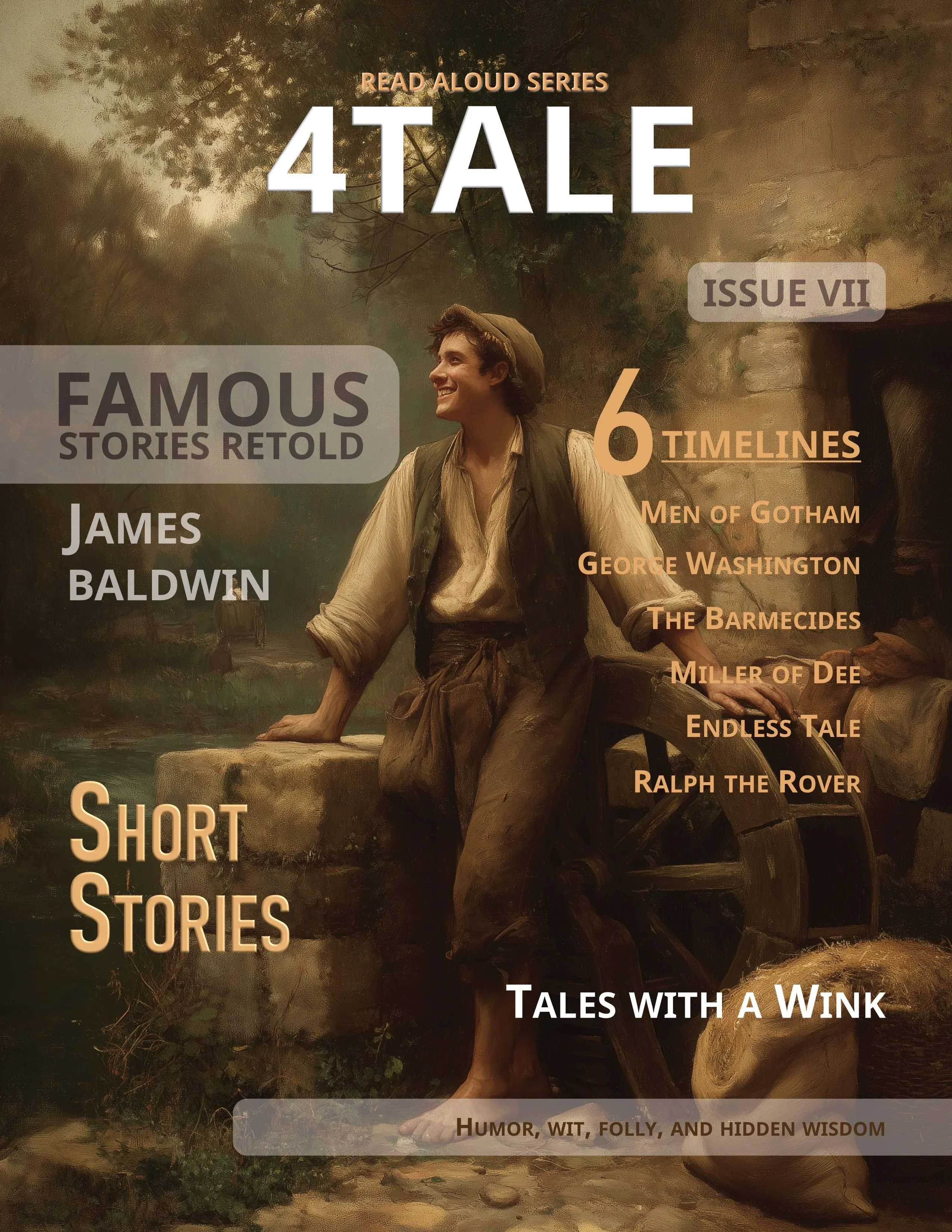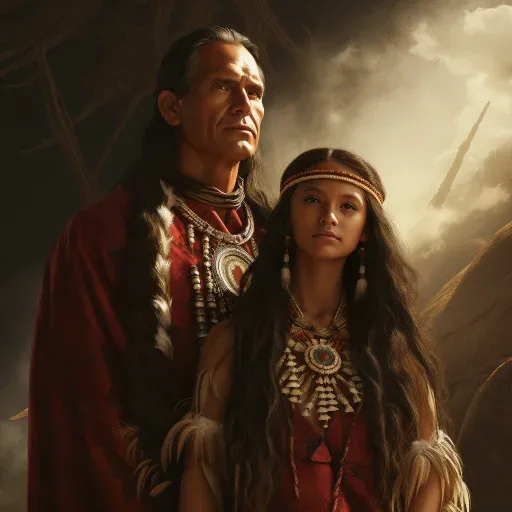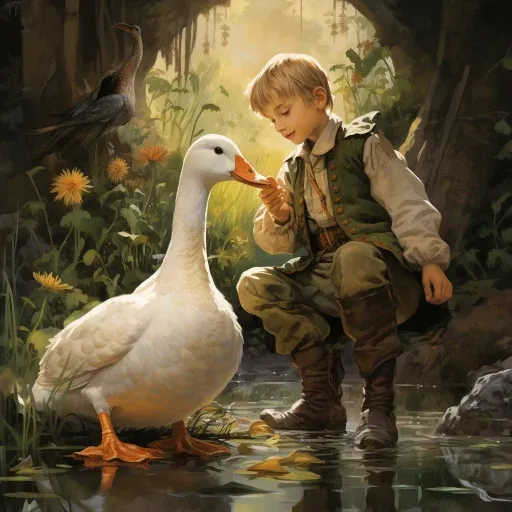BY JAMES BALDWIN
George Washington and His Hatchet
Famous Stories Retold: Story 18 of 50
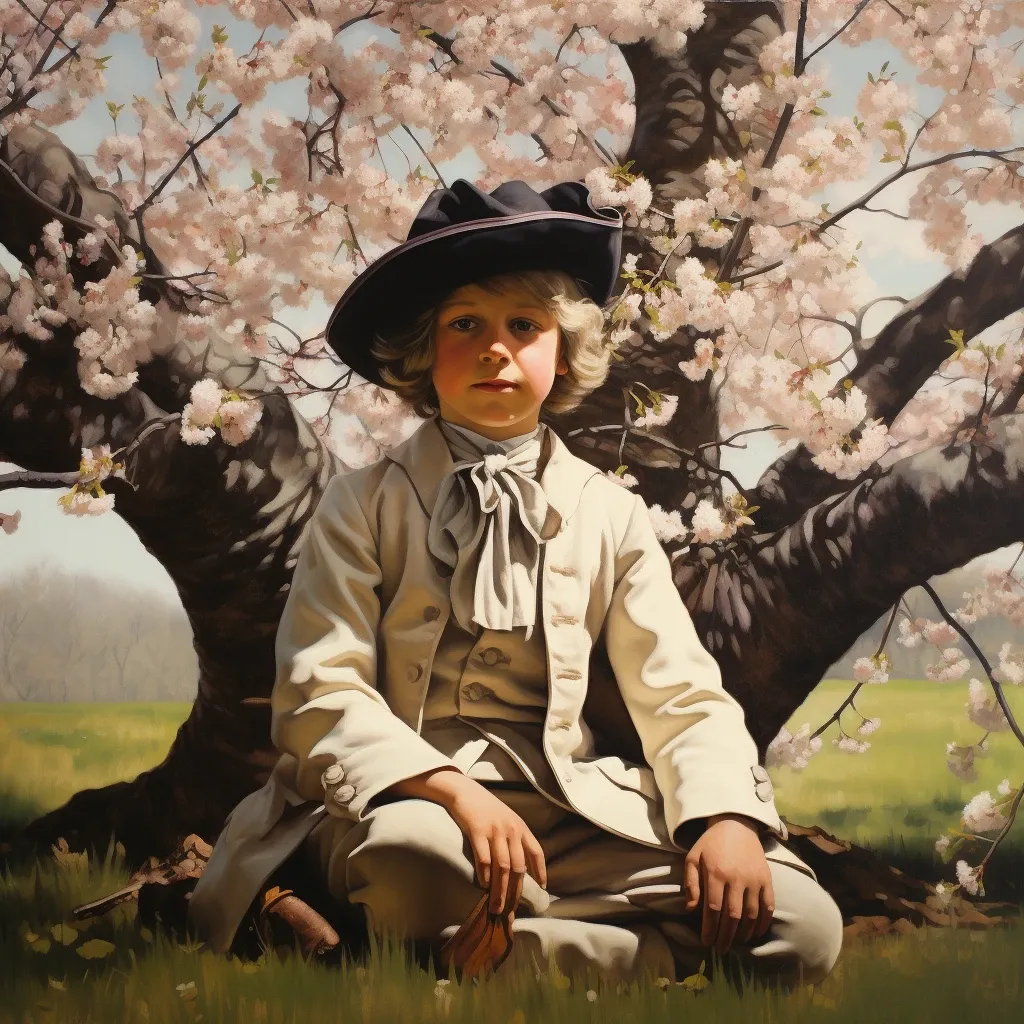
Heading

Legend: This story about young George Washington and the cherry tree is a legend meant to illustrate his honesty.
Symbol: The story, though likely apocryphal, has become a symbol of integrity and honesty in American folklore.
A good book we like, we explorers. That is our best amusement, and our best time killer
- Roald Amundsen, Explorer
George Washington and His Hatchet: A Tale of Presidential Honesty
Unearth the tale of a boy and his hatchet, a story that molded the character of a young George Washington, destined to be America's first President. Venture into his childhood garden, where an innocent act led to a profound lesson in honesty. The tale of the cherry tree, though simple, holds a powerful truth about the importance of integrity. Join us as we delve into this timeless anecdote, revealing how it shaped Washington's future leadership and why it remains significant today.
The Gift of the Hatchet: A Symbol of Boyhood
Young George Washington was bestowed an unusual gift by his father - a gleaming hatchet. This simple tool brought him great joy and became a symbol of his boyhood, embodying his youthful enthusiasm and spirit of adventure. The hatchet, bright and new, represented the transition from a child's playthings to a more practical and grown-up toy. It was this very hatchet, in George's eager hands, that would play a pivotal role in shaping a memorable incident in his early life.
The Alluring Cherry Tree: A Temptation too Strong
Upon venturing into the garden, George was met with a sight that sparked his curiosity - a solitary cherry tree. Seeing the tree, almost as if it beckoned him, filled him with an irresistible urge to use his new hatchet. The cherry tree represented a challenge, a temptation too strong for the young boy to resist. He had seen his father's men fell the grand trees in the forest and longed to replicate the feat himself. His innocent desire for recreation, however, would soon lead to unforeseen consequences.
Podcast
The Act of Rebellion: The Fall of the Cherished Cherry Tree
George Washington, spurred by his newfound fascination with his hatchet and the tantalizing prospect of chopping down a tree, sets out to fulfill his curiosity. The cherry tree, no match for George's determination and his sharp hatchet, ultimately met its end. This act of rebellion, the fall of the cherished cherry tree, was not an act of defiance, but rather a product of George's innocent enthusiasm and his yearning for grown-up activities. What followed, however, was a series of events that would forever mark George's childhood and shape his character
The Return of the Father: A Stir of Anger and Loss
Upon his return, George Washington's father was met with the sight of his cherished and unique cherry tree lying pitifully on the ground. His heart filled with both anger and a profound sense of loss. This was no ordinary tree; it was the only one of its kind in the country and had cost him a small fortune. His fury was palpable as he demanded to know who had mindlessly destroyed his prized possession. Yet, within the household, there was no immediate answer, only the looming question, "Who could have done this?"
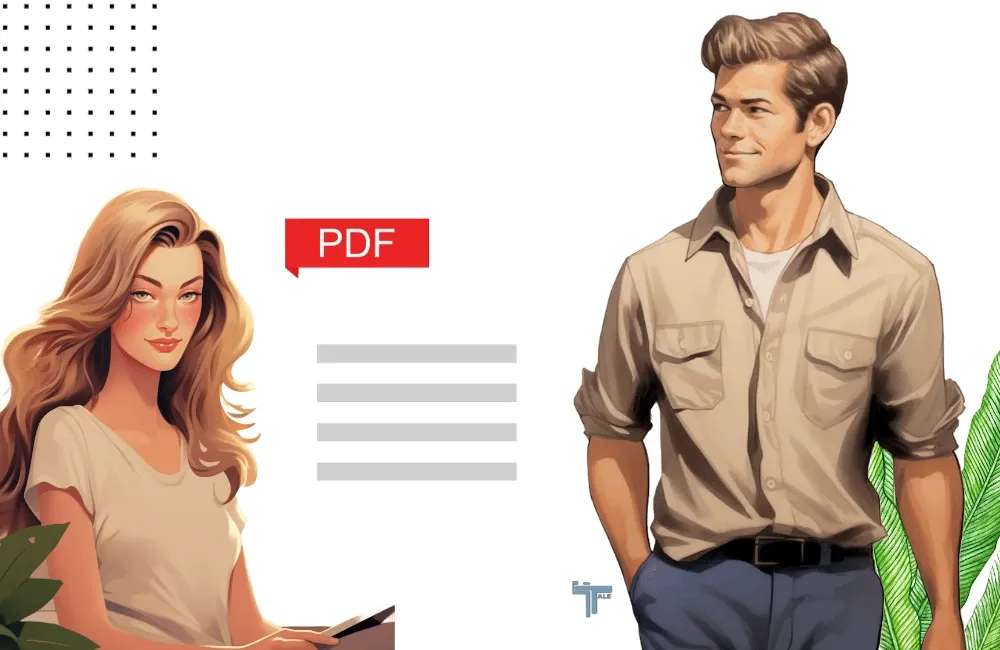
The Confession: George Washington’s Honesty Emerges
It was then that young George Washington stood forth, his innocent face bearing the weight of his actions. With a brave voice, he confessed, "Father, I cannot tell a lie. It was I who cut down the cherry tree with my hatchet." His words, though shocking, were delivered with a sincerity that could not be ignored. It was a pivotal moment, one that illustrated the honesty and integrity that would later become the cornerstone of his character as the first President of the United States.
The Father’s Response: Valuing Truth Over Material Loss
Suddenly, the father's anger dissipated, replaced by a sense of pride and relief. He held his son close, his voice soft as he declared, "George, I am glad that you told me about it. I would rather lose a dozen cherry trees than that you should tell one falsehood." In his response, we see the immense value placed on honesty, a value that outweighed the loss of the cherry tree. This story serves as a testament to the importance of truth, a lesson that has been passed down through generations and remains relevant even today.
Conclusion
The tale of George Washington and his hatchet is more than a simple anecdote. It's a testament to the importance of honesty and integrity, virtues that would shape Washington's future role as America's first president. This tale illustrates the immense value placed on truthfulness, even over material possessions, a moral lesson that remains timeless. This narrative, as simple as it may seem, offers a profound insight into the character of one of the most influential figures in our history. The cherry tree, the hatchet, and a little boy's honesty, together, crafted a legacy that continues to inspire.

